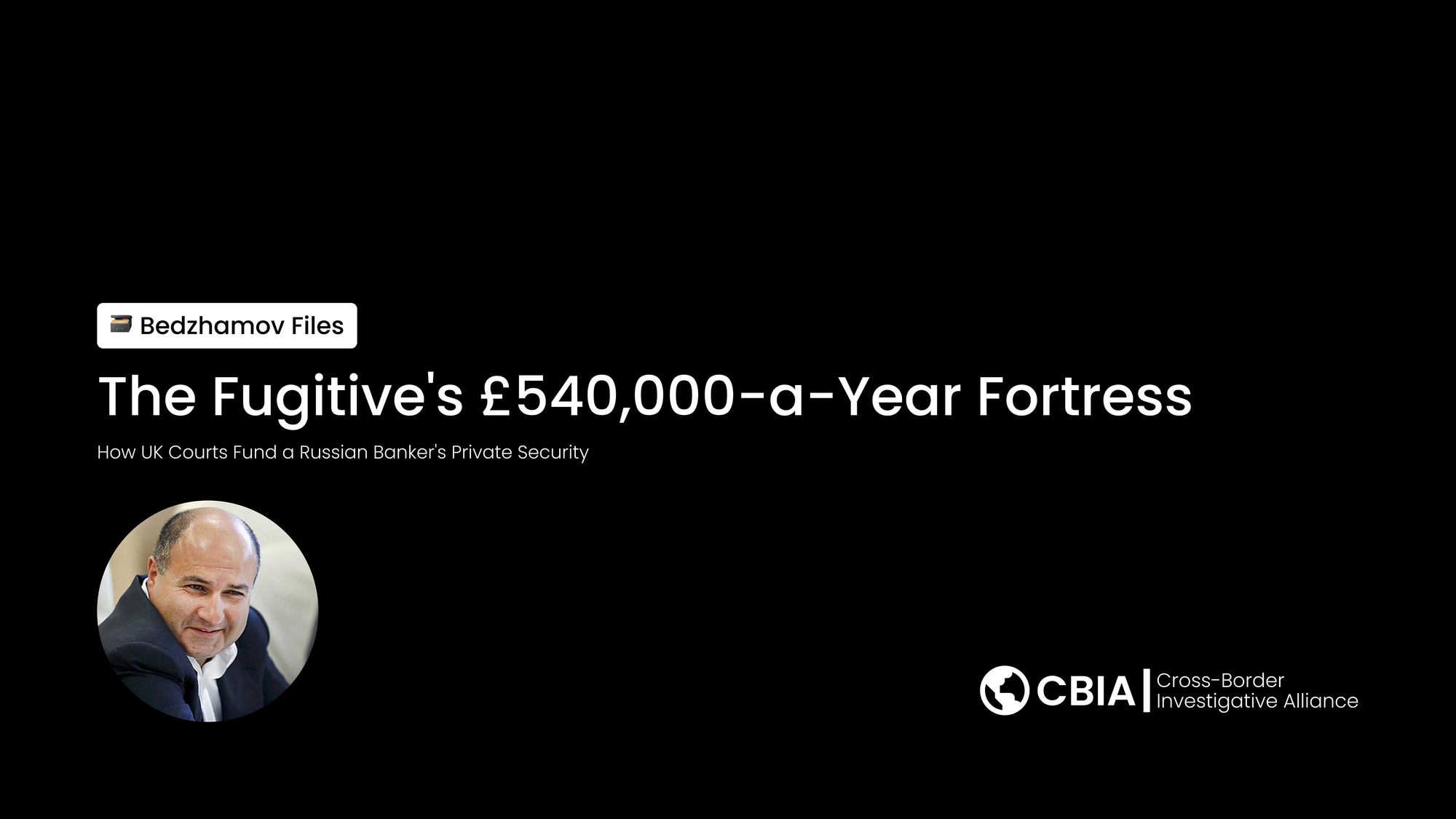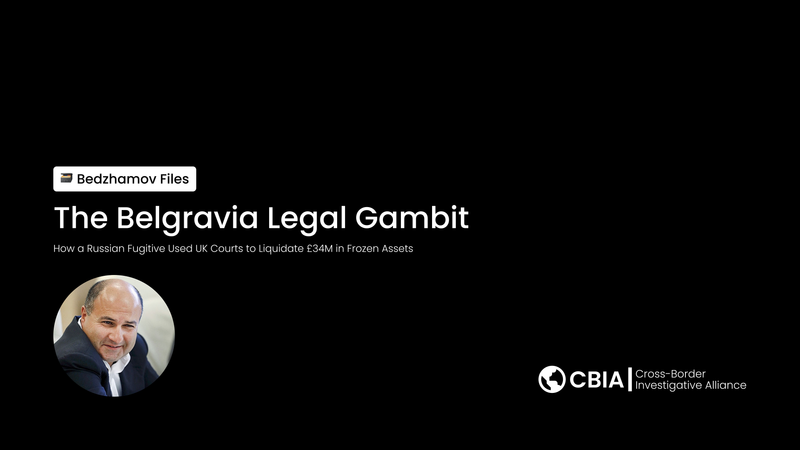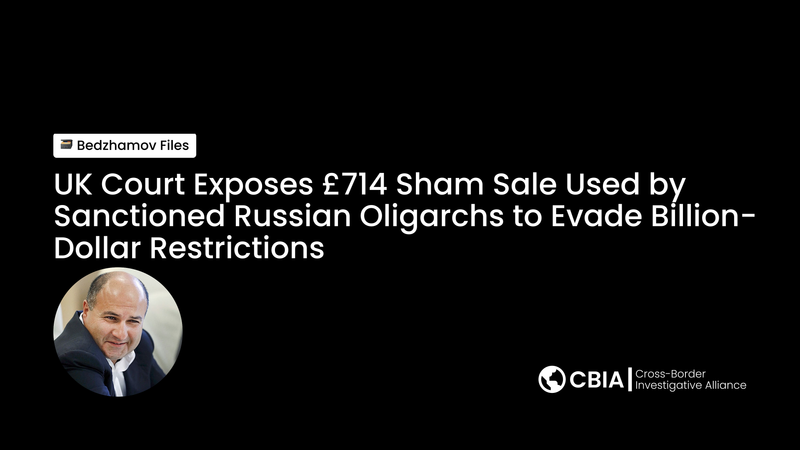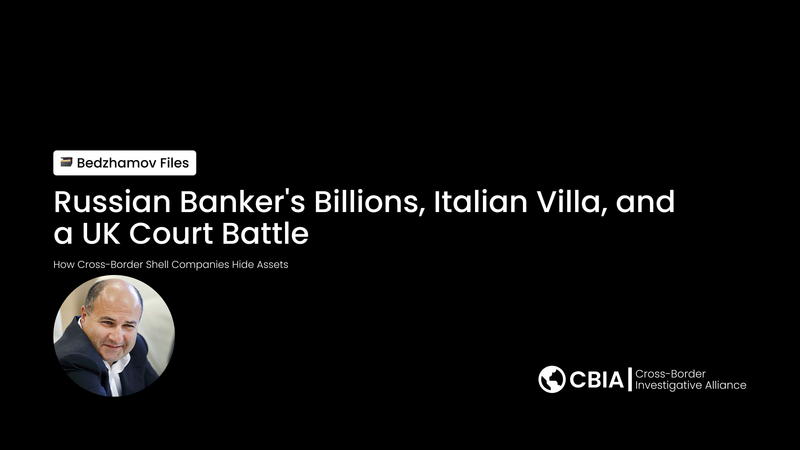The Fugitive's £540,000-a-Year Fortress: How UK Courts Fund a Russian Banker's Private Security

A controversial UK Court of Appeal ruling has permitted Georgy Bedzhamov, a Russian banker wanted for massive fraud, to spend up to £540,000 annually on private security from his frozen assets—creating an extraordinary legal paradox where the British justice system enables a fugitive to protect himself using the very funds he allegedly stole.
Bedzhamov, the former head of Vneshprombank, faces charges in Russia over the collapse of one of Moscow's largest banks in 2016, with investigators alleging he was involved in fraudulent activities causing losses of $1.34 billion. Despite denying the allegations, he is subject to a worldwide freezing order (WFO) worth £1.34 billion imposed by the High Court in March 2019 [3].
The Court of Appeal's 2019 decision in Vneshprombank LLC v Bedzhamov established the principle that defendants should not have their lifestyle unreasonably restricted by freezing orders. The court permitted Bedzhamov to spend approximately £45,000 per month (£540,000 annually) on private security services, alongside other living expenses including rent on properties in London and Monaco, private education for his children, and medical expenses [1].
The security costs were justified by credible threats to Bedzhamov's safety. According to court documents, police expressed concerns about his security following the 2018 Novichok attack on Sergei Skripal and his daughter in Salisbury, with fears that Bedzhamov could become victim to a similar assassination attempt [3].
"The court permitted payment of private education fees and private security costs, recognizing these as part of the defendant's ordinary living expenses given the circumstances and credible security threats," the Court of Appeal stated in its detailed judgment, emphasizing that freezing orders must not operate oppressively by unreasonably restricting established living expenses [1].
This arrangement represents a unique legal conundrum. While Bedzhamov's assets remain frozen pending resolution of the fraud allegations, the court's interpretation of "ordinary living expenses" has created a mechanism whereby he can fund substantial security operations to protect himself from potential assassination—potentially by agents of the very state that is pursuing him for the alleged theft.
The case highlights broader challenges within the UK's approach to financial sanctions and asset freezing. Legal experts note that the principle established—that defendants should maintain their pre-freezing lifestyle—can lead to seemingly contradictory outcomes when applied to high-profile international fraud cases involving state-level threats.
Bedzhamov, who previously ran the Russian bobsleigh federation, has consistently denied the corruption charges [3]. His legal team successfully argued that the initial £80,000 monthly spending cap was insufficient to maintain his established lifestyle, forcing him and his family to vacate their previous residences in London and Monaco [1].
The Court of Appeal ultimately increased his permitted monthly expenditure to approximately £161,000, which includes the security costs alongside rent payments for properties in both London (up to £18,000 per week) and Monaco, plus other living expenses. The court imposed procedural safeguards requiring solicitors to verify invoices and leases before making payments [1].
Further complicating the case, recent court proceedings in 2024 have raised additional questions about sanctions compliance related to Bedzhamov's litigation funding, with concerns about whether his funding arrangements might involve sanctioned individuals from the Russian financial sector [2].
This case underscores the complex intersection of international financial crime, personal security, and legal principles designed to prevent oppressive use of asset-freezing powers. While the court's decision protects defendants' rights against potentially punitive pre-trial asset restrictions, it has created an unprecedented situation where frozen criminal proceeds effectively fund protection against the alleged victims of the underlying crimes.
The broader implications extend beyond this individual case, raising questions about how legal systems should balance defendants' rights with public interest when dealing with high-stakes international financial crimes involving state-level actors and credible assassination threats.
Sources:
[1] England and Wales Court of Appeal (Civil Division), Vneshprombank LLC v Bedzhamov & Ors, [2019] EWCA Civ 1992
[2] High Court of Justice, Business and Property Courts, Vneshprombank v Bedzhamov, [2024] EWHC 1048 (Ch)
[3] London Evening Standard, "Wanted oligarch can spend £45k a month on his private security," January 13, 2020





